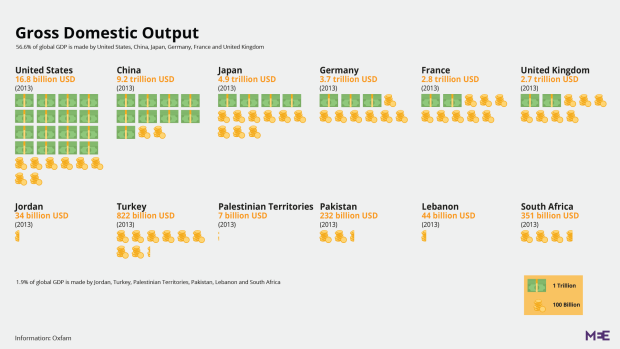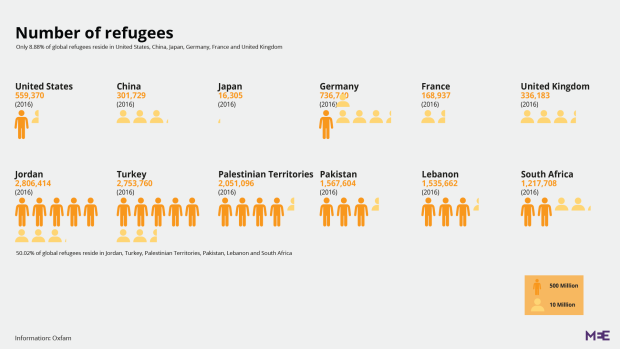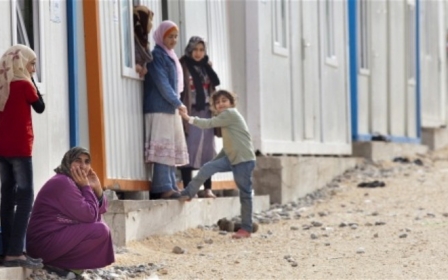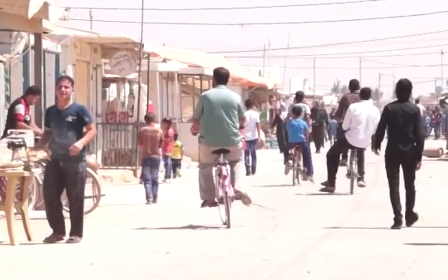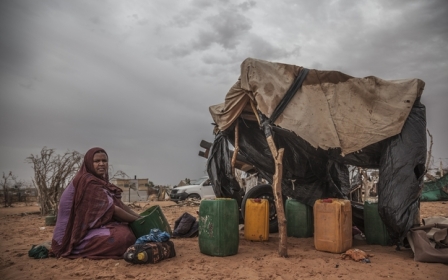Six richest countries host just 9 percent of world's refugees: Oxfam
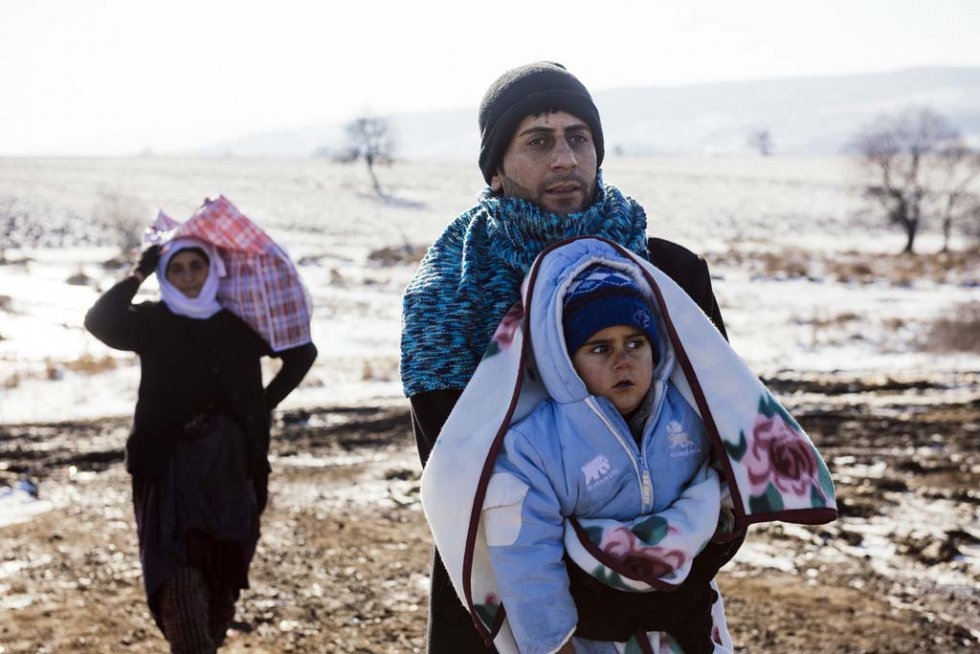
The world’s six wealthiest countries – which together make up more than half the global economy – host fewer than nine percent of the total refugee population, Oxfam has found.
“A poor welcome from the world’s wealthy,” a new report published by the aid group on Monday, finds that manmade crises are forcing record numbers of people to flee their homes, many to neighbouring countries that are “ill-equipped to help”.
The world’s six wealthiest countries – the US, China, Japan, Germany, the UK and France, which together contribute 56.6 percent of global GDP – host just 8.88 percent of the over 15 million people currently displaced outside their home countries.
Over 50 percent of the total refugee population are hosted by six states that contribute 1.9 percent of global GDP – Jordan, Turkey, the Occupied Palestinian Territories, Pakistan, Lebanon and South Africa.
Meanwhile, the report says, rich states are contributing to and even profiting from the instability behind the biggest migration crisis since World War Two.
“For example, a surge in weapons purchased by Saudi Arabia (including from the UK and the US), which is leading a coalition of nations fighting in Yemen, helped push global arms sales up more than 10 percent in 2015,” the report finds.
Over a million Yemenis are currently displaced, although the vast majority have fled their homes to other parts of the country, which even before the start of the current conflict last March was the poorest in the region.
Arms sales to Saudi Arabia from the UK – which has sold $3.6bn of weaponry to the kingdom since March 2015 – continue, despite “compelling evidence” uncovered by Human Rights Watch that UK-made armaments have been used in air strikes that broke international law.
The report also slams the EU for “misusing aid” to curb the numbers of people seeking asylum in Europe.
“European governments are prepared to work with and provide aid to regimes such as Sudan and Eritrea in order to prevent the movement of people,” the report claims.
EU leaders reportedly held a secret meeting in March in which they agreed to send cameras, scanners and other border-control technology to Sudan – as well as training its border guards – despite concerns raised by some officials that the EU could be criticised for “engaging with repressive governments on migration”.
The EU also recently entered into a controversial deal with Ankara – which has long sought EU membership – to try to prevent people from attempting the risky crossing from Turkey, which is currently hosting an estimated 2.7 million Syrian refugees, to Europe.
The Oxfam report calls on the governments of wealthy countries to substantially increase the support offered to low- and middle-income countries hosting large numbers of refugees, though it does not demand a loosening of border restrictions by richer states.
“The world's richest countries can and should do much more to help the world’s most vulnerable people who have fled their homes because of violence and conflict,” the report concludes.
New MEE newsletter: Jerusalem Dispatch
Sign up to get the latest insights and analysis on Israel-Palestine, alongside Turkey Unpacked and other MEE newsletters
Middle East Eye delivers independent and unrivalled coverage and analysis of the Middle East, North Africa and beyond. To learn more about republishing this content and the associated fees, please fill out this form. More about MEE can be found here.


